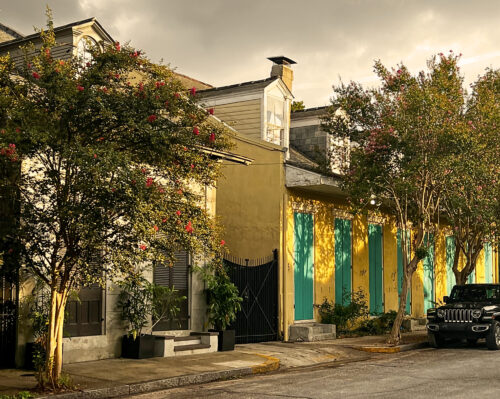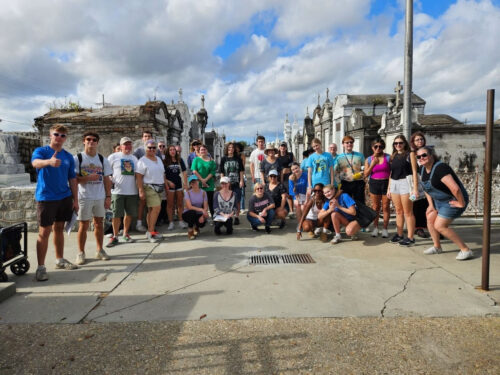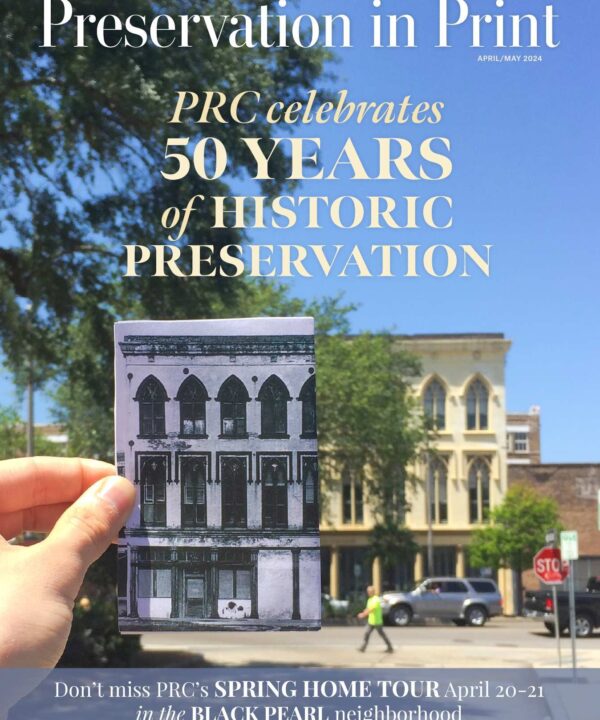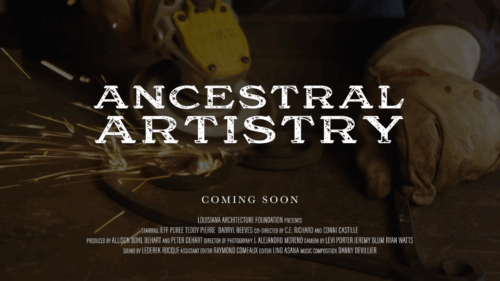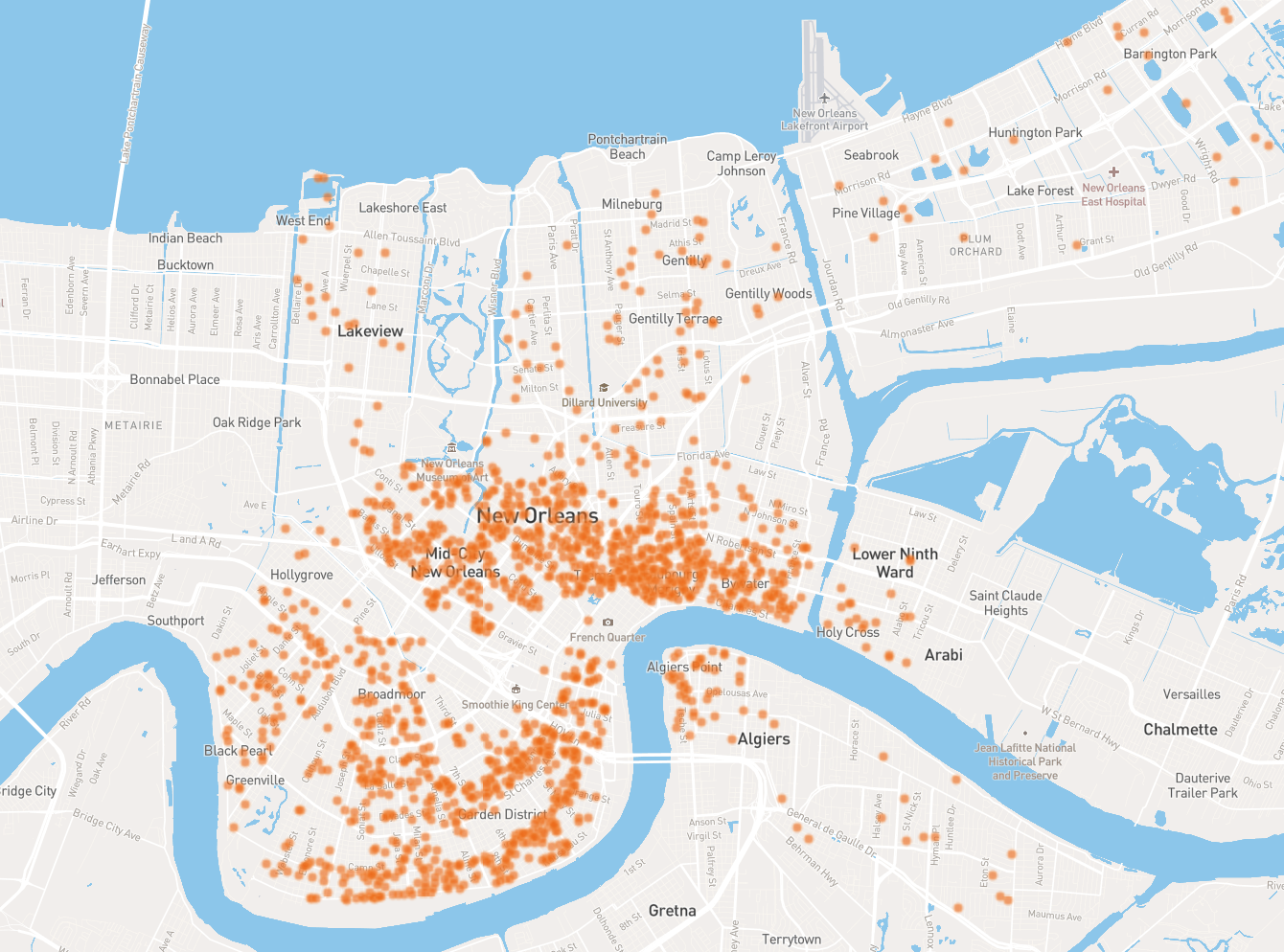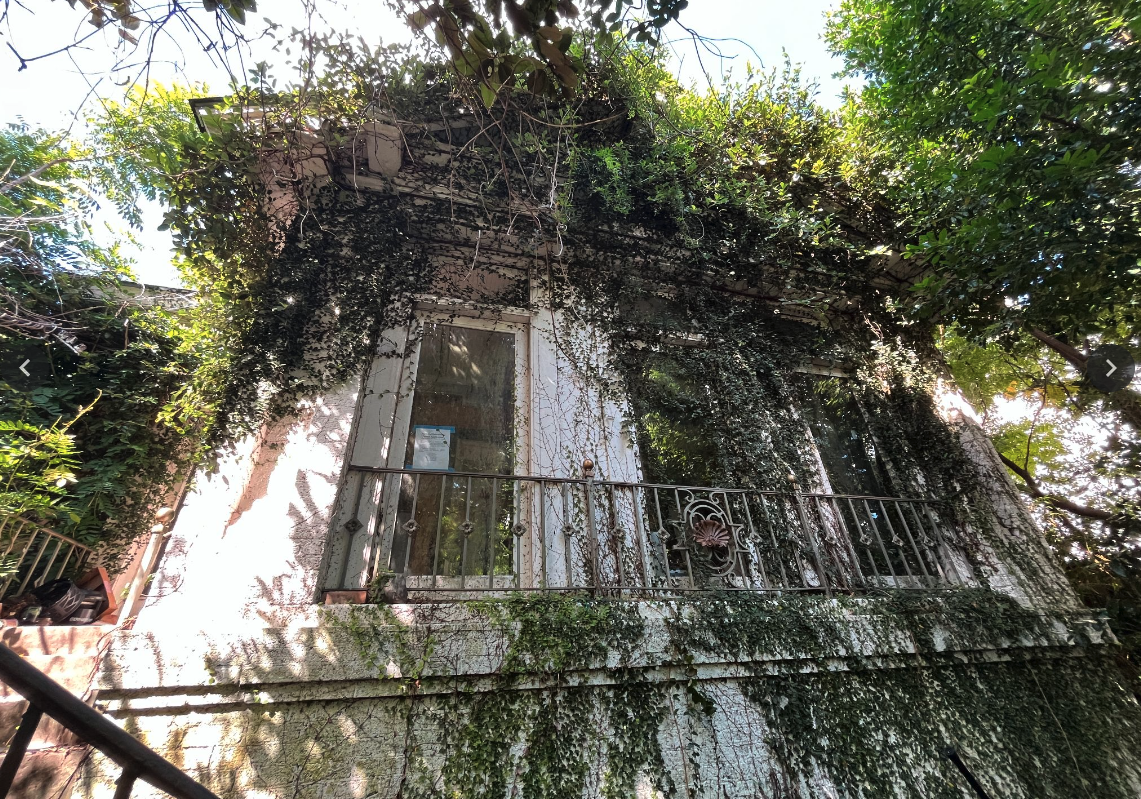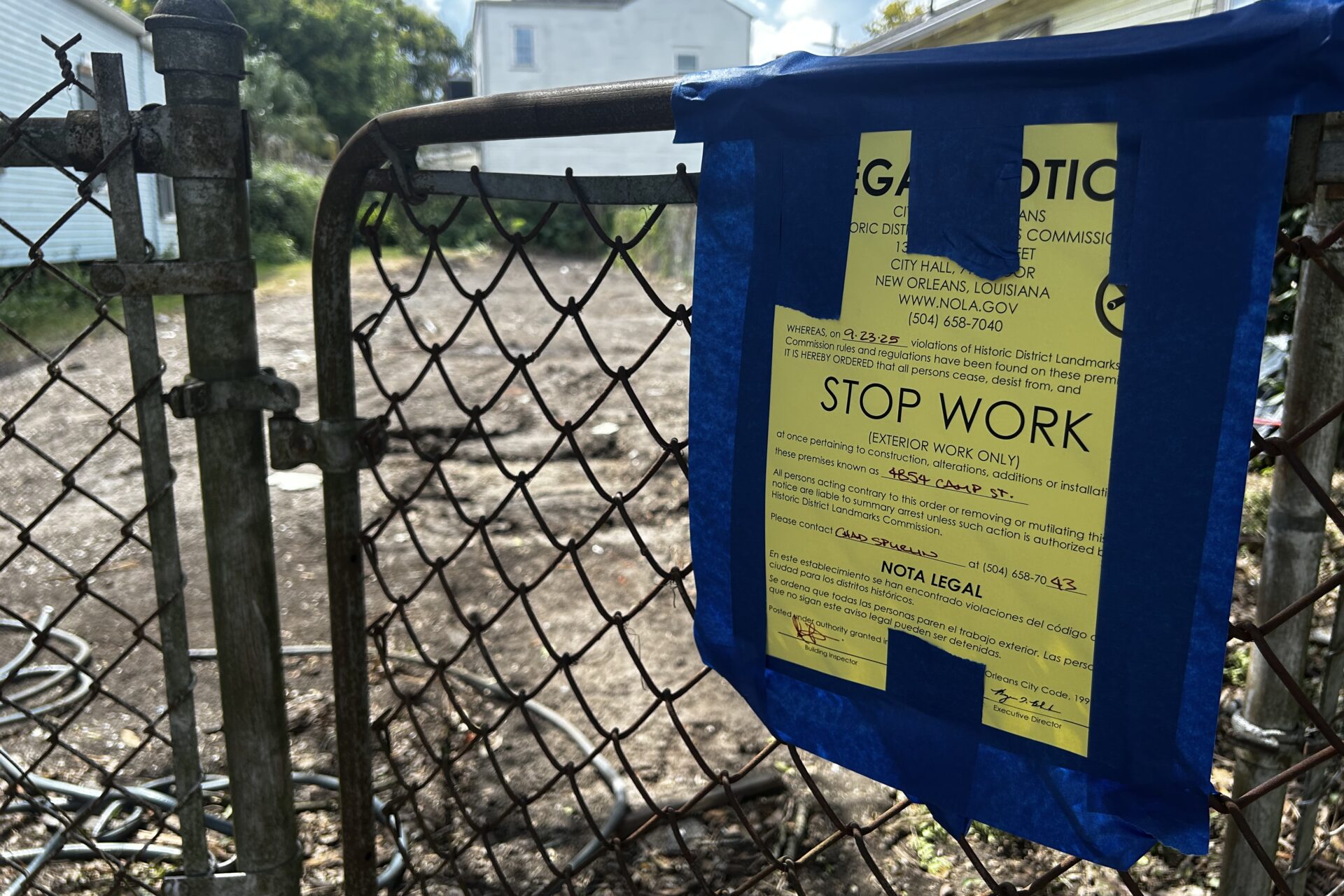Image: map of current, active STR licenses in Orleans Parish, image courtesy of nola.gov
Tomorrow, the New Orleans City Planning Commission (CPC) will take up the thorny issue of short-term rental regulations for the third time in seven years. The city’s rules governing short-term rental permits in residential zoned areas were tossed out by the federal 5th Circuit Court of Appeals in New Orleans last year, and the City Council quickly initiated a process to craft new regulations.
The CPC meeting starts at 1:30 p.m. on Tuesday, Jan. 24, at 1300 Perdido St. Public comments will be heard. PRC supports reasonable density limitations that protect quality of life and traditional rental housing. Simple, straightforward rules should encompass all short-term rentals and bed and breakfast venues, holding them to similar standards for guest safety and neighborhood conduct. Below are some key points up for discussion.
The CPC staff has recommended limiting short-term rentals in residential zoning to one per blockface (a city block has two faces — odd and even) and one per lot. A coalition of neighborhood associations and housing activists calls that too permissive. While the number of lots per blockface varies across the city, the proposed rule theoretically allows the conversion of between 15 and 25 percent of the housing stock in historic neighborhoods for use as short-term rentals. Additionally, many neighborhoods include corner stores and commercial corridors like Magazine Street, Oak Street and St. Claude Avenue. Without a density limit on short-term rentals (STR) in commercial zoning, these neighborhood commercial areas could see more conversion of shopfronts and apartments into STRs.
The CPC staff also recommends an operator occupancy requirement similar to that already placed on licensed bed and breakfasts. The rule would require a designated individual to reside on site and be available to guests within one hour. This is a reasonable attempt to achieve some of the supervision that was intended by the homestead exemption requirement, which was tossed out by the federal court ruling. However, there remains widespread skepticism as to how it will be enforced. According to Inside AirBnB, more than 85 percent of rentals are for entire homes or apartments. The site also reports that a majority of the STRs listed on the platform are unlicensed or have lapsed licenses.
The CPC staff has also recommended making STRs a temporary use in residential zoning. This reflects the judges’ clear statement that holding an STR is a privilege and not a property right. However, there are STR operators who have followed the rules and now find themselves in limbo. A new, more restrictive system may require a lottery for STR permits. While it is unclear if permits obtained prior to 2019 can be grandfathered, those obtained after the 2019 rule change are not eligible for grandfathering.
Nathan Lott is PRC’s Policy Research Director and Advocacy Coordinator.

